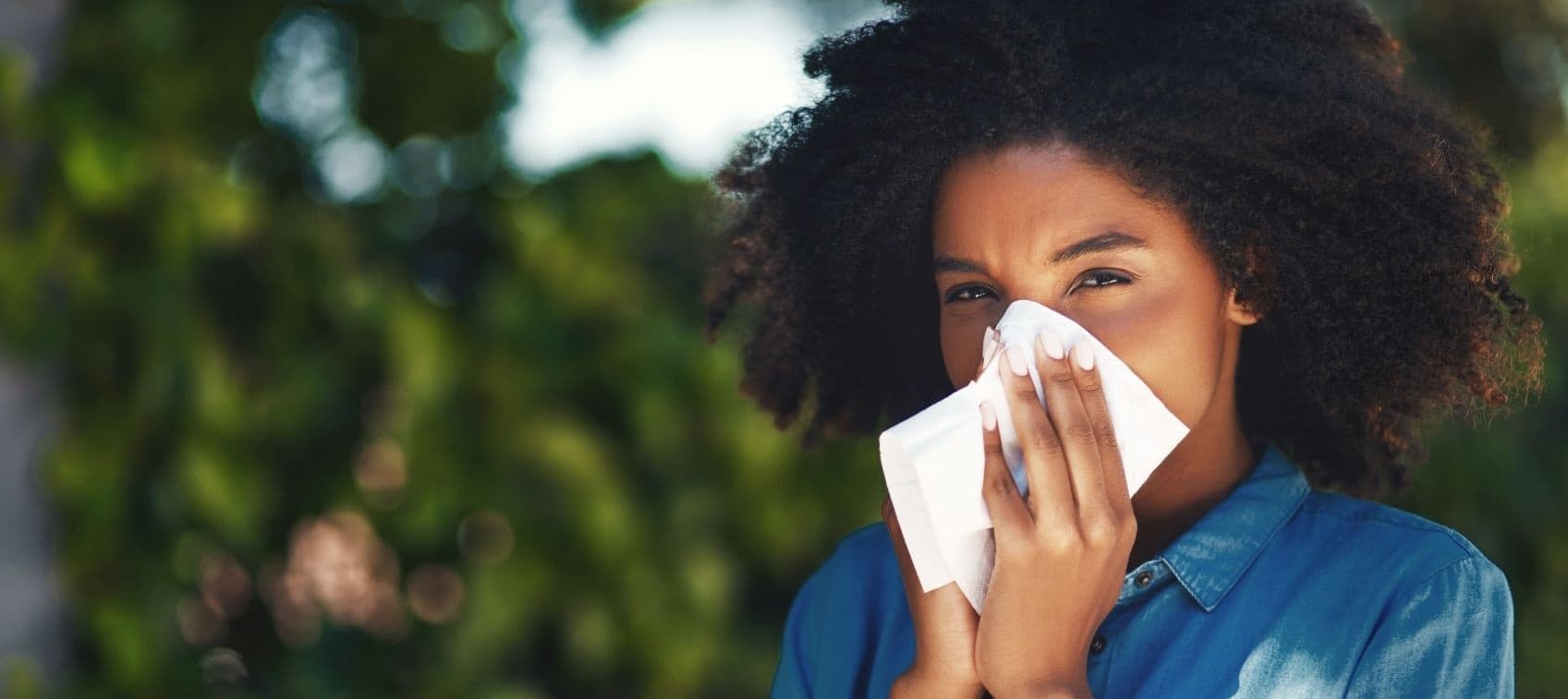
Most of us have experienced the misery to some degree—the sneezing, runny nose, watery eyes, and mucous overload that comes along with allergies. I’ve experienced severe allergies myself, having spent much of my adult life in the Connecticut River Valley. I enjoyed the beautiful views, but not the coughing and sneezing.
Allergies are on the rise and recent seasons have shaped up to be some of our toughest yet. According to the American College of Allergy, Asthma & Immunology, allergies affect over 50 million people in the United States—and that number is growing.
What concerns me as a cardiologist is that allergies aren’t as benign as they may seem. Left unchecked, they can take a serious toll on lung health and even lead to heart disease.
How Allergies Affect Your Heart
Allergies—whether they’re to pollen, mold, animal dander, or dust—initiate an overzealous immune response. When you encounter an irritant, your body reacts just as it would to a cold or flu by taking steps to rid it from your body.
It does that by producing immunoglobulin (IgE) antibodies that trigger your body’s release of histamine. This triggers an inflammatory response in your respiratory system, which is why allergies can cause congestion and difficulties breathing.
While some inflammation is healthy and normal, left unchecked it can lead to inflammation throughout your body, including your arteries and heart—increasing your risk of heart disease and even heart attacks.
Can Allergies Cause High Blood Pressure?
Some people wonder if allergies can cause high blood pressure. While allergies don’t have a direct connection to blood pressure, the resulting inflammation can constrict your arteries and blood vessels, which can impact blood flow, raising your blood pressure. Plus, some allergy medications, such as pseudoephedrine, can raise your blood pressure.
Another question I get is can allergies cause heart palpitations? Allergies aren’t a direct cause of an irregular heartbeat. Yet, some decongestants are stimulants and can induce heart palpitations in people who are sensitive to that side effect.
What Is the Best Way to Treat Allergies?
Reaching for over-the-counter allergy medicine isn’t the best solution, since as I just mentioned they can affect your blood pressure and heart rate. Plus, while they may help to relieve symptoms temporarily by drying up mucous membranes, they’re not going to address the root cause of the problem.
Fortunately, there are some highly effective alternative approaches for allergy relief that also support the underlying inflammatory response.
- Keep allergens out of your home. While we can’t avoid allergens outdoors, we can help to mitigate the number of irritants in our homes. When you come inside, change your clothes and take a shower to remove any pollen that you may have tracked in. I also recommend using a good high-quality HEPA-grade air purifier, especially in the bedroom, keeping it on 24/7 during the pollen season.
- Flush out irritants with a neti pot. This can help open up the airways and reduce irritation caused by things like pollen, pet dander, and dust.
- Eat an anti-inflammatory diet. Especially during peak allergy seasons or situations, I recommend you eliminate as much sugar as possible. Sugar is notorious for creating inflammation. Instead, eat more anti-inflammatory omega-3 rich foods in your diet—such as wild-caught salmon, walnuts, and chia seeds. Plus, olive oil is an excellent anti-inflammatory food choice.
- Give your body the right nutrient support. There are nutrients that can help your body respond appropriately to allergen exposure and keep that inflammatory response in check. I particularly like quercetin, which has antioxidant and inflammation balancing properties. You can find it in supplement form or get it through foods like onions and apples. Bromelain is a potent inflammation-regulating enzyme that really helps, too—pineapples are a great source. Traditional herbs, such as astragalus and marshmallow, can also help with lung health support.
- Try grounding. Grounding (also known as Earthing) is very simply reconnecting the human body with the energy that’s naturally present in the ground we walk on. When you walk outside barefoot, you absorb electrons from the Earth’s surface, and they have a profoundly anti-inflammatory effect on the body. Not only can this help with allergy symptoms and heart health, but it can dramatically reduce stress and increase calm, and even reduce pain.


